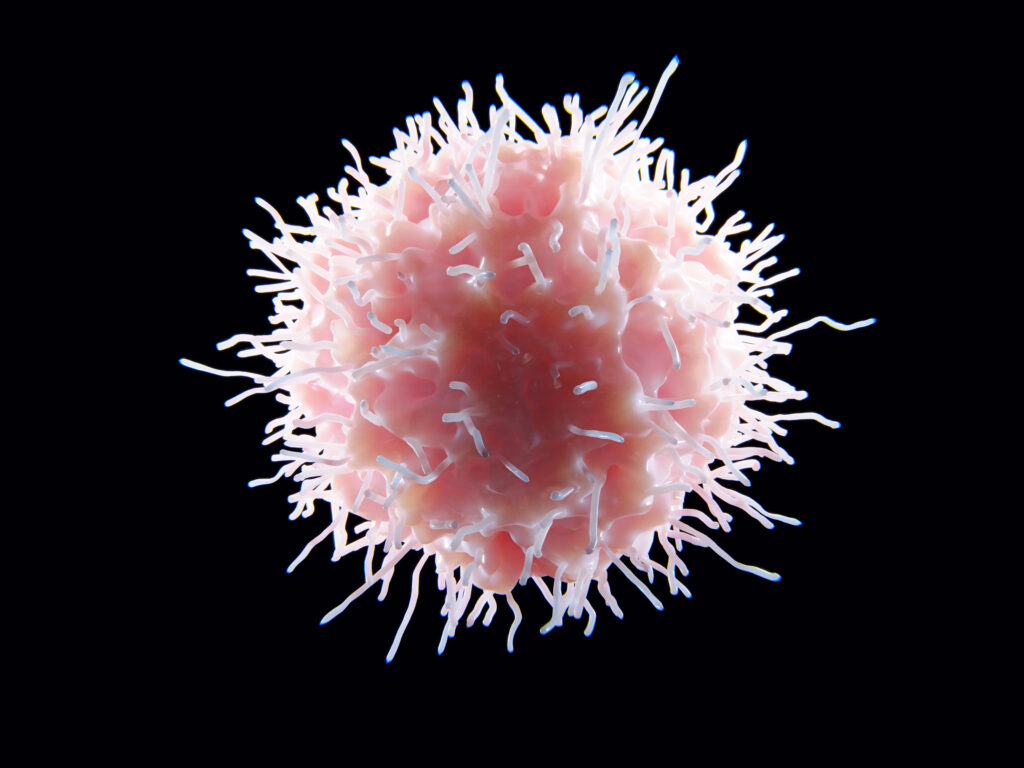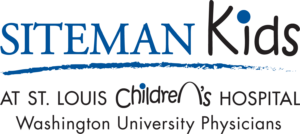Investigator-Initiated Trial; Only Available at Siteman Cancer Center, Siteman Kids in St. Louis
ST. LOUIS — A new and promising clinical trial aimed at preventing relapse in patients diagnosed with acute myeloid leukemia (AML) is now open at Washington University School of Medicine in St. Louis.
The trial (NCT06158828) is only available to pediatric patients through Siteman Kids at St. Louis Children’s Hospital and young adult patients up to age 30 at Siteman Cancer Center at Barnes-Jewish Hospital and Washington University School of Medicine. It builds upon long-standing, pioneering work by WashU researchers focused on the use of memory-like NK cell (ML NK) therapy to treat blood cancers.
“AML relapse after bone marrow transplant is a major problem to address,” says Washington University pediatric oncologist Thomas Pfeiffer, MD, co-lead principal investigator (PI) for the pediatric clinical trial at Siteman Kids. “Currently, 30% to 40% of patients relapse, sometimes as soon as three or four months after transplant, and others up to several years after initial treatment.”
Chemotherapy is a primary treatment for AML, a cancer of the blood and bone marrow. In some cases, however, patients require a bone marrow/stem cell transplant. Despite advances in transplant techniques and care, researchers say that relapse remains the most frequent cause of treatment failure.
The new AML clinical trial will evaluate a two-stage treatment that includes allogeneic hematopoietic cell transplantation followed by the infusion of ML NK cells, generated at Siteman’s Biological Therapy Core Facility a week after transplant. It is open to patients in need of a first or second transplant.
“The advantage of NK cellular therapy is that it doesn’t result in debilitating side effects, such as graft-versus-host disease, cytokine release syndrome or neurotoxicity, that have been associated with other cellular therapies,” says Dr. Pfeiffer. “We have significant expertise at WashU in the research and use of NK cell therapy to fight cancers, so this is another step to advance better treatment options.”
Siteman is leading the way in advancing this novel, personalized immunotherapy. Washington University bone marrow transplant specialist Todd Fehniger, MD, PhD, who serves as the laboratory PI of the study, was the first to discover that human NK cells could be re-programmed into ML NK cells to induce remissions in many relapsed or refractory leukemia patients. To date, researchers at Washington University have successfully treated more than 100 patients with ML NK cells. Previous trials at Siteman, led by Jeff Bednarski, MD, PhD, and Amanda Cashen, MD, affirmed feasibility, safety and efficacy of this novel immunotherapy in children and adults with AML.
Dr. Cashen serves as co-lead PI of the new study, along with Dr. Pfeiffer. She will oversee young adults enrolled in the AML trial.
This latest AML transplant trial involves an innovative graft manipulation method that eliminates the need for pharmacological immunosuppression following transplantation. By employing this approach, researchers create an optimal environment for administering additional immunotherapies post-transplant, potentially enhancing therapeutic efficacy and improving patient outcomes. Specifically, doctors will use stem cells from a half-matched father, mother or sibling donor for the transplant. The stem cell graft undergoes further processing to eliminate specific immune cells, called TCR alpha/beta T cells, which are known to cause graft-versus-host disease. Seven days after stem cell infusion, patients receive an infusion of same-donor ML NK cells to boost the new immune system’s attack on cancer cells.
“We are uniquely positioned to advance the use of ML NK cells in the treatment of leukemias,” notes Dr. Pfeiffer. “We believe that adding this therapy post-transplant could lead to more durable remissions and long-term cures in many more patients than the current treatment options.”
The trial is funded by the Leukemia & Lymphoma Society, Pedal the Cause and the St. Louis Children’s Hospital Foundation. For more information about the study or to enroll a patient, visit siteman.wustl.edu/202401147.

